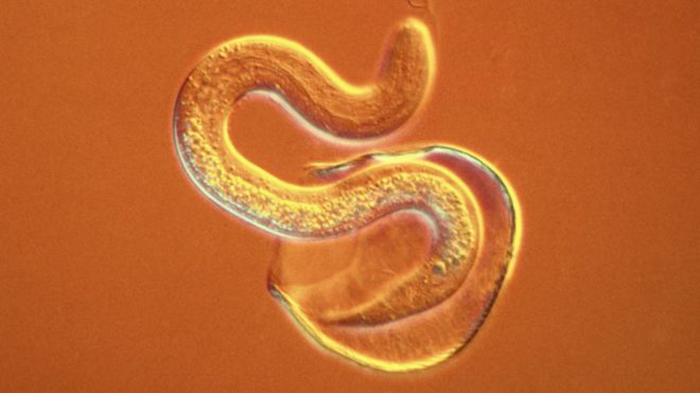Youyou Tu shares the prize for her discovery of a therapy against malaria.
The Nobel committee said the work had changed the lives of the hundreds of millions of people affected by these diseases.
The mosquito-borne disease malaria kills more than 450,000 people each year around the world, with billions more at risk of catching the infection.
Parasitic worms affect a third of the world`s population and cause a number of illnesses, including River Blindness and Lymphatic Filariasis.
Parasites
After decades of limited progress, the discovery of the two new drugs - Avermectin for River Blindness and Lymphatic Filariasis, and Artemisinin for malaria - was a game changer.
Image copyright CDC
Efforts to eradicate malaria had been failing - older drugs were losing their potency - and the disease was on the rise.
Youyou Tu, who in the 1960s had recently graduated from the Pharmacy Department at Beijing Medical University, looked to traditional herbal medicine to find a potential therapy.
She took an extract from the plant called Artemisia annua or Sweetwormwood and began testing it on malaria parasites.
The component, later called Artemisinin, was highly effective at killing them.
Today, the drug is used around the world in combination with other malaria medicines.
In Africa alone, this is saving more than 100,000 lives every year.
Previous winners of the Nobel Prize for physiology or medicine
2014 - Three scientists - John O`Keefe, May-Britt Moser and Edvard Moser - for discovering the brain`s navigating system.
2013 - James Rothman, Randy Schekman, and Thomas Sudhof for their discovery of how cells precisely transport material.
2012 - Two pioneers of stem cell research - John Gurdon and Shinya Yamanaka - were awarded the Nobel after changing adult cells into stem cells.
2011 - Bruce Beutler, Jules Hoffmann and Ralph Steinman shared the prize after revolutionising the understanding of how the body fights infection.
2010 - Robert Edwards for devising the fertility treatment IVF which led to the first "test tube baby" in July 1978.
2009 - Elizabeth Blackburn, Carol Greider and Jack Szostak for finding the telomeres at the ends of chromosomes.
More about:
















































